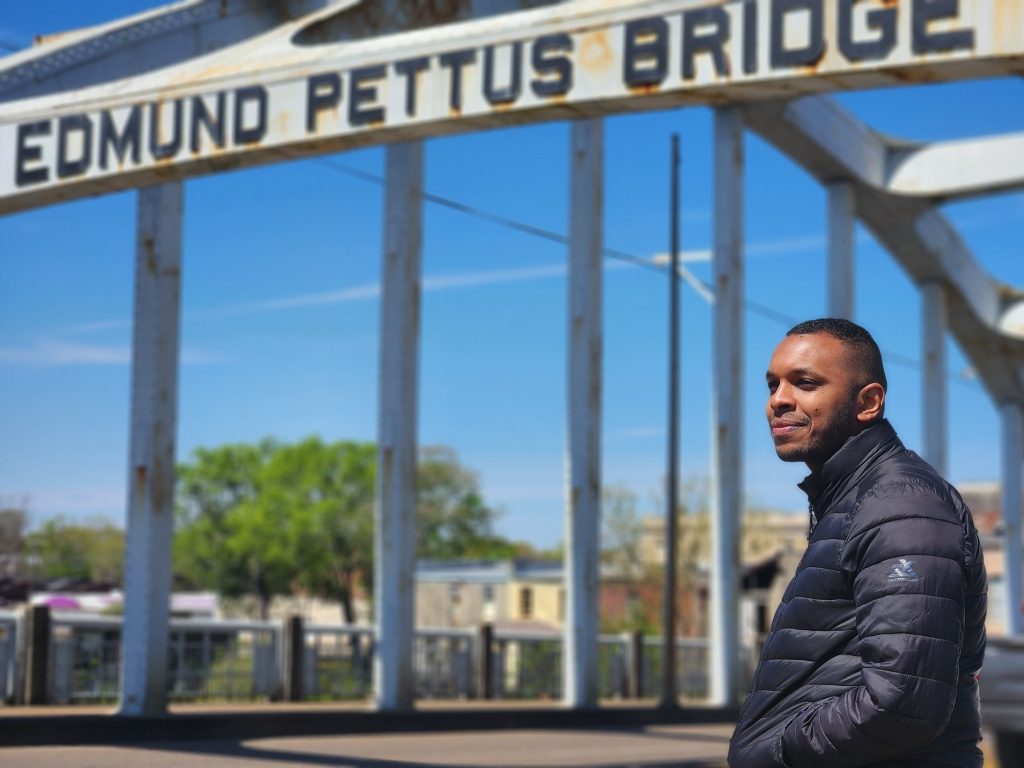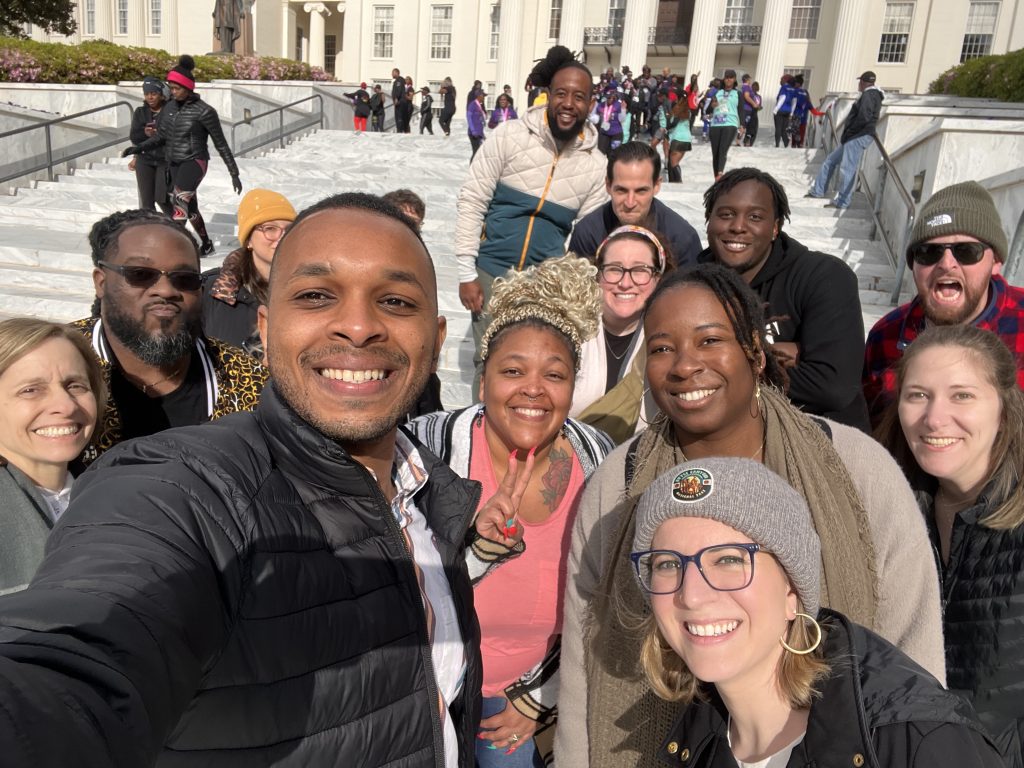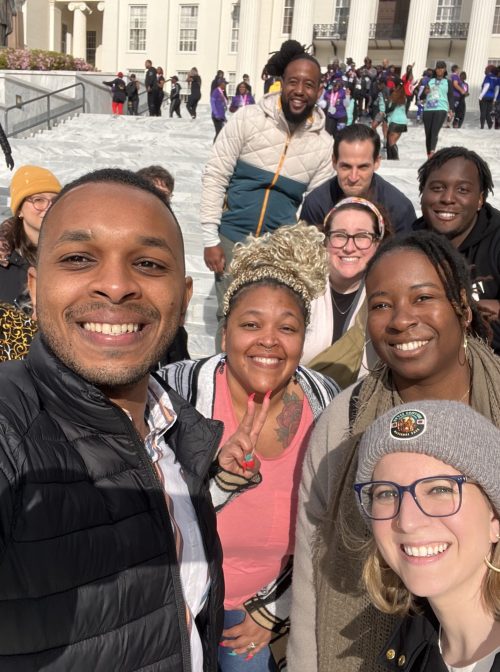In 2022, I joined 10 exceptional individuals as a member of the Charlotte Black/Jewish Alliance cohort; a coalition of Jewish and Black leaders aged 25 to 40, dedicated to cultivating understanding and authentic relationships through honest conversations, deep reflection, and community engagement.
Being a part of the cohort was an incredibly transformative experience for me. Over the past eight months, I could engage in meaningful conversations, embark on inspiring journeys, attend engaging programs, and forge long-lasting connections with individuals who share a common goal of advancing justice. One highlight of this program was the four-day Deep South Pilgrimage, where we visited historical Civil Rights sites in Atlanta, Birmingham, Montgomery, and Selma. This journey left a profound impact on me and reinforced the importance of Black and Jewish communities working together today more than ever.
The interfaith nature of the Charlotte Black/Jewish Alliance is crucial to its mission. By bringing together individuals from diverse religious backgrounds, the alliance creates a platform for open dialogue and the active seeking of understanding across lines of difference.

Throughout our journey, I witnessed firsthand the power of this interfaith alliance as we explored the rich histories and struggles faced by both Black and Jewish communities. We learned about Jewish engagement in the Civil Rights Movement in Birmingham and shared a soul food Shabbat experience. We explored the connections between Jim Crow Laws and the Nazi’s Nuremberg Laws, delving into the social construct of race and its historical ramifications for both Blacks and Jews. And we also identified practical responses to combat antisemitism and racism today, and engaged in deep reflections, honest conversations, and community engagement.
It is through collaboration and understanding between Black, Jewish, and other marginalized communities that we can continue the journey toward a more just society.
Visiting significant landmarks such as the Edmund Pettus Bridge in Selma and the 16th Street Baptist Church in Birmingham further reinforced the importance of our alliance. These sites, which mark pivotal moments in the Civil Rights movement, remind us of the sacrifices made by those who fought for equality, justice, and the right to vote. Standing on the Edmund Pettus Bridge on the anniversary of Bloody Sunday, I contemplated the bridges that still need to be crossed and the bridges we must build together. As President Obama stated in 2015, “We honor those who walked so we could run. We must run so our children soar.” It is through collaboration and understanding between Black, Jewish, and other marginalized communities that we can continue the journey toward a more just society.
Among the many memorable experiences of the trip, one moment resonated deeply with me as it encapsulated the journey’s essence. We spent most of the morning and afternoon on a chilly Saturday touring the Legacy Museum: From Enslavement to Mass Incarceration and the National Memorial for Peace and Justice. After a day of learning about the painful history of slavery, lynching, racial segregation, and over-incarceration in the United States, we found ourselves in front of the Alabama State Capitol building in Montgomery.
Emotionally worn-out and challenged, we encountered Selma in Montgomery 51 Mile Relay Race and Bike Ride. Despite the weight of the history surrounding us, the atmosphere was festive, filled with music, dancing, and laughter. In that moment, I looked around me and I saw us — a group of young Black and Jewish people gathered on the steps of the Capitol, celebrating our unity and resilience. We stood in a city deeply shaped by a troubling history of racism and religious bigotry, symbolizing the dream that Dr. Martin Luther King Jr. spoke about — the embodiment of America’s sacred promise.
We are a coalition of Black and Jewish leaders who recognize that anti-Blackness, antisemitism, and all forms of bigotry are interconnected systems of oppression; they rely on and reinforce each other, perpetuating inequality, and injustice.
Only through a comprehensive and intersectional approach can we create a society that embraces true equity and justice for all. Our goal is to bridge the divide between our communities, so we are united as we confront the challenges of our time. As Mary McLeod Bethune said, “If we have the courage and tenacity of our forebears, who stood firmly like a rock against the lash of slavery, we shall find a way to do for our day what they did for theirs.”





